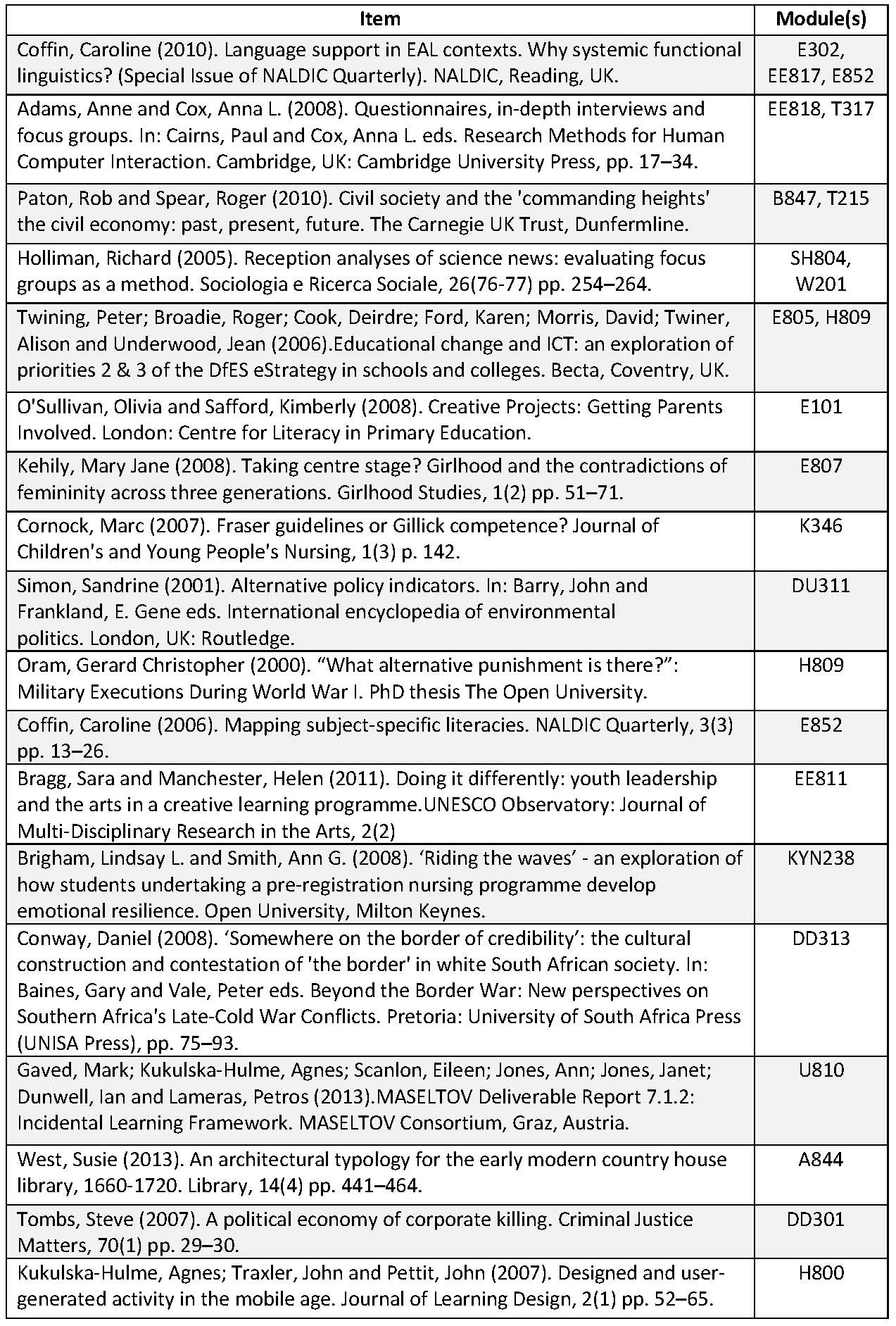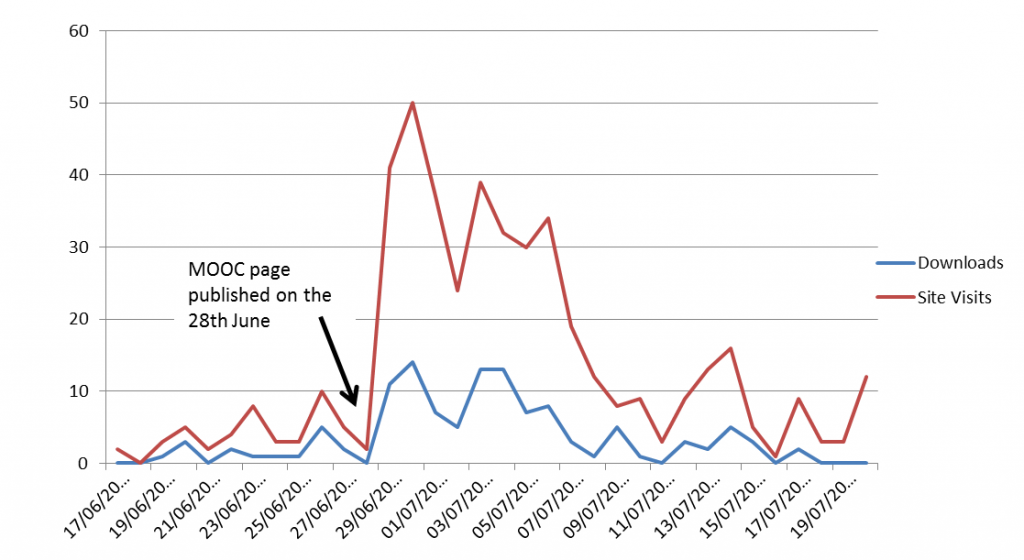The focus for ORO remains the dissemination of OU research outputs to the widest possible audience. However, there is a use for ORO that we sometimes forget: ORO can be an Open Access resource bank for module production.
When she was at the OU as Director, Research, Scholarship and Quality Astrid Wissenberg gave a presentation on using research outputs in modules. At the time I was aware of around a dozen ORO items that were being used in OU Modules and gave Astrid some examples for the presentation she titled Sprinkling gold dust: challenging students with cutting edge research.
I’m aware from colleagues that ORO items are quite heavily used in some IET modules, so I thought I’d have another look to see if there had been an increase in the use of ORO items in OU Modules. Below is a list of known library links to ORO records provided for module production – we found 18 different items associated with 23 different modules:

So there is continued usage of ORO items in module production… and maybe there is a lot more off my radar – I’d love to know about it!
I’ve also noticed at least two ORO items being used in FutureLearn MOOCs: Regine Hampel (2014). Making meaning online: computer-mediated communication for language learning. was used in Understanding Language and Rosie Flewitt, David Messer, and Natalia Kucirkova (2015). New directions for early literacy in a digital age: the iPad. was used in Childhood in the Digital Age. There seems an obvious match between Open Access research and Open Access teaching (see blog post Open Access research in Open Access courses).
The benefits of using Open Access materials from ORO for teaching include:
- Linking to ORO items is free
- OU researchers involved in module production are in a great position to identify relevant work for use in modules
- OU researchers can deposit the Author’s Accepted Manuscript of their work in ORO at any time – even if it has already been published. Adding the item to ORO makes it available for using in module production.
Of course ORO isn’t the only place to go, if you are looking for Open Access content CORE is the best place to start with over 36 million Open Access articles aggregated from repositories across the world.
And it works both ways, one of the most downloaded items in ORO is Nigel Cross (2001). Designerly ways of knowing: design discipline versus design science. Design Issues, 17(3) pp. 49–55 – it gets several hundred downloads a month! One of the reasons for this is because it is used in a Masters programme in Interaction Design and Technologies at the University of Gothenburg. So getting the full text in ORO may increase the dissemination of a research output via University Curricula across the globe.


